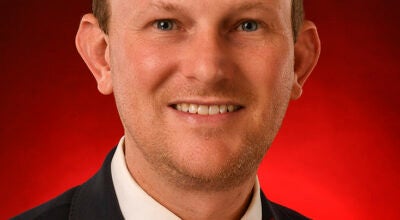What does it mean to be ‘business-friendly’?
Published 9:48 am Monday, April 8, 2013
In an attempt to explain how important attitude – and innovation – are for economic success, Dr. David Bronner used a good, old-fashioned compare-and-contrast example.
“Take, for instance, the Mercedes Benz plant,” Bronner told the Troy Rotarians on Tuesday, explaining that when the automobile manufacturer was recruited to Alabama in the 1980s, few incentives and efforts were made to lure tier 2 and tier 3 suppliers.
Twenty years later, when Hyundai was courted, the floodgates were opened, and not only did Alabama land the automobile manufacturer and its suppliers “I don’t have to tell you how important that plant, and the tier 1, tier 2 suppliers have been to this area of Alabama,” Bronner said.
As the chief executive officer of the Retirement Systems of Alabama, Bronner knows a thing or two about business incentives. He manages a $30 billion pension fund that serves more than 325,000 employees and retirees and includes holdings as varied as real estate in Mobile, Montgomery and New York City; Raycom Broadcasting; Community Newspaper Holdings Inc; and the Robert Trent Jones Golf Trail.
And his message, among others shared with the Rotarians that day, was a simple one: We’ve got to invest in Alabama and be willing to change the way we do things to be economically viable.
Just days after Bronner’s talk, the Alabama Policy Institute published its assessment of the business climate in the state. “How Business-Friendly Are Alabama’s 50 Largest Cities?” ranks the state’s biggest cities on four categories: viability, business tax burden, community allure and transportation infrastructure, all of which “ensure business success and protect the entrepreneurial spirit.”
Making the argument that the state’s most business-friendly cities posses responsible, limited governance, reasonable tax rates, quality school systems, low crime, access to transportation infrastructure and a thriving economy “despite significant economy challenges over the last several years,” the report digs deep into the strengths and weaknesses of our state’s communities – including Troy.
And, like most reports, there’s good news, and bad.
“I think it shows our strengths and where we need to improve,” said Troy Mayor Jason Reeves. “I am pleased we are in the top half, but certainly not satisfied.”
For Troy – which earned a 20th place ranking overall – the news is mostly good.
Troy scored highest in the business tax burden category, which actually measures how favorable a community is toward a business. It’s based on property tax rates and general sales tax rates and Troy scored 79.34 – a measure that would probably draw praise from Bronner.
Economic vitality, which factored such things as job growth, population growth, and median per capita income, is a barometer of sorts when determining how well a community could withstand an economic downturn. Troy scored 42.97, perhaps a bit disappointing for some.
Not surprisingly, in transportation infrastructure Troy fared well, scoring 59.68. And in community allure – the quality of life category that measures such things as cost of living and educational offerings – Troy fared 43.83, another area for improvement, Reeves said.
But the rankings, like so many other assessments, must be kept in perspective. They are one measure – one study – of what it takes to nurture and develop a business-friendly environment. The reality of landing an automobile manufacturer to a state – or in the case of Troy and Pike County building a diverse economic base that crosses from transportation to technology to manufacturing and back again – takes much more than a simple matrix can measure.
It takes human capital – innovation and vision, communication and collaboration and good, old-fashioned hard work, something we’ve never shied away from.
“When recruiting, we have always been very competitive as a good place for a company to do business,” said Marsha Gaylard, president of the Pike County Economic Development Corporation. And, as a further testament to business-friendly environment of our community, “our existing businesses continue to grow and expand,” she added.
And that’s something no study can measure.


